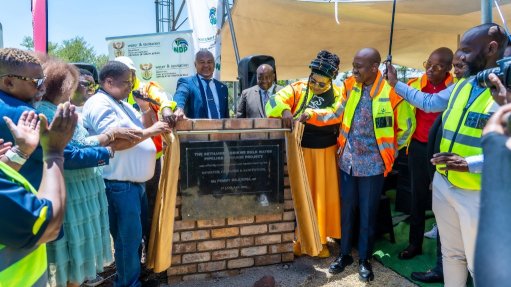A few snippets
Often, when I drink too much (oh . . . maybe once or twice a year) I lapse into the telling of old tales and stories.
Let me hasten to add that this happens if I drink too much whiskey or too much coffee. The result is the same. I relax and feel the need to educate the world. My dog, Thompson, knows the tone of my voice when I do this and rolls onto his back, closes his eyes and thumps his tail softly on the carpet. My staff, some of whom have put up with me for more than ten years, when they hear the familiar tone, exchange glances and doodle on their exam pads, patiently waiting for the tale to come to an end. When I finally finish with a flourish, I will often say: “Oh, have I told you this before?” One of the staff will say, kindly: “Some of us.”
Thus, I thought I would set down some of the tales I tell, in this column. Listen: The strangeness of vocabulary, I say. I ask: “What do the following phrases have in common: with bated breath, crack of doom, eaten me out of house and home, elbow room, foregone conclusion, for goodness’ sake, in my mind’s eye, it smells to heaven, laid on with a trowel, lean and hungry look, milk of human kindness, naked truth, neither rhyme nor reason, sick at heart, tower of strength, as good luck would have it?” Yes, I tell them, they were all originated by William Shakespeare more than 400 years ago. And they are still in use!
I explain to them that language is not easily changed to match the real world.
For example, I tell them, we ‘pick up the phone’, when, in fact, we do not do that, since the phone is not on a cradle any more. We ‘put the phone down’, when we do not do that. We ‘slam the phone down’, when we can no longer do that. We ‘hang up’, when there is no longer any hook to hang on, and ‘there’s somebody on the line’, when, in fact, there are very few telephone lines left. And again, in the 1970s, a computer had a small initialising program to get it going: it was called the ‘boot program’, since it notionally caused the computer to ‘pick itself up by its boot straps’. We still ‘reboot’ the computer, but there is no boot program and these days nobody has boots with straps.
Things happen in a very special way. I explain, before World War I (about 1914) there were no electronic amplification devices. However, it was possible for ships at sea to communicate wirelessly. Each ship had a transmitter that could generate a big spark. This caused an electromagnetic radiation pulse. Other ships would detect the pulse using a simple circuit. The ships used Morse code to transmit information using a series of long and short pulses, known as dots and dashes.
Now (I explain), all the ships used all the available frequency spectrum – so, it was common to shorten the ship’s call sign to save on available spectrum use. Further, the ships from different shipping companies had different endings to their names. For example, all the White Star Line ships’ names ended in ‘-ic’ – as in RMS Olympic, RMS Atlantic and, of course, RMS Titanic. Cunard ships ended in ‘-ia’, as in RMS Lusitania, RMS Turbinia, and so on. This made owner identification simple.
So, it happened that, in 1930, the Cunard owners decided to build a great new liner. They wanted to call it the RMS Queen Victoria and decided to ask the permission of the then British monarch, King George V. They told him that they wanted to name their new ship after “one of England’s most illustrious queens”. King George said: “Oh! My wife will be delighted!” Thus, since his wife was Mary of Teck, the ship became the RMS Queen Mary. Thus, do my staff listen? One more time the old stories . . .
Article Enquiry
Email Article
Save Article
Feedback
To advertise email advertising@creamermedia.co.za or click here
Comments
Press Office
Announcements
What's On
Subscribe to improve your user experience...
Option 1 (equivalent of R125 a month):
Receive a weekly copy of Creamer Media's Engineering News & Mining Weekly magazine
(print copy for those in South Africa and e-magazine for those outside of South Africa)
Receive daily email newsletters
Access to full search results
Access archive of magazine back copies
Access to Projects in Progress
Access to ONE Research Report of your choice in PDF format
Option 2 (equivalent of R375 a month):
All benefits from Option 1
PLUS
Access to Creamer Media's Research Channel Africa for ALL Research Reports, in PDF format, on various industrial and mining sectors
including Electricity; Water; Energy Transition; Hydrogen; Roads, Rail and Ports; Coal; Gold; Platinum; Battery Metals; etc.
Already a subscriber?
Forgotten your password?
Receive weekly copy of Creamer Media's Engineering News & Mining Weekly magazine (print copy for those in South Africa and e-magazine for those outside of South Africa)
➕
Recieve daily email newsletters
➕
Access to full search results
➕
Access archive of magazine back copies
➕
Access to Projects in Progress
➕
Access to ONE Research Report of your choice in PDF format
RESEARCH CHANNEL AFRICA
R4500 (equivalent of R375 a month)
SUBSCRIBEAll benefits from Option 1
➕
Access to Creamer Media's Research Channel Africa for ALL Research Reports on various industrial and mining sectors, in PDF format, including on:
Electricity
➕
Water
➕
Energy Transition
➕
Hydrogen
➕
Roads, Rail and Ports
➕
Coal
➕
Gold
➕
Platinum
➕
Battery Metals
➕
etc.
Receive all benefits from Option 1 or Option 2 delivered to numerous people at your company
➕
Multiple User names and Passwords for simultaneous log-ins
➕
Intranet integration access to all in your organisation


















